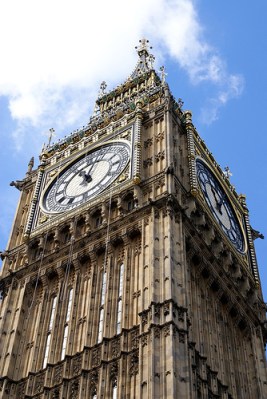The UK’s House of Lords has summoned senior figures from Facebook and Google in their ongoing investigation into media convergence, media power and how this should be regulated in the future. The Communications Committee, which is leading the investigation, will be meeting Simon Milner, policy director at Facebook, and Sarah Hunter, Google’s head of UK public policy, along with Edward Rousell, the executive editor of digital for the Telegraph Media Group. The committee has in the past also taken evidence from Virgin Media Group, Channel 4 and the BBC, but these will be the first sessions at which pure-play Internet companies will also participate.
While Google is a regular name that comes up in conversations about media control — being the world’s largest search engine also makes Google a strong player in how online media gets consumed, and that has caused tension between Google and publishers — it’s a sign of the growing power of Facebook that it, too, is being called to weigh in on the role played by aggregating websites, or “intermediaries,” as the Communications Committee describes them.
“One of the more remarkable of these changes [in media] is the emergence of so-called ‘digital intermediaries,’ like Google and Facebook. As part of their inquiry, the Committee are naturally interested to explore the role played by such intermediaries, and to consider what, if any, implications for public policy this may have,” a spokesperson told me.
There is no listed agenda for the session, which will take place on December 4, but the premise of the meeting looks like it will be sounding out the two, and potentially giving more consideration to their roles in future legislation.
“What challenges and opportunities do they present for news plurality, jurisdiction and content standards, and how can the best outcomes for the UK public be ensured?” the committee wrote in a statement.
The House of Lords works in conjunction with the House of Commons to pass and implement media and communications legislation, which ultimately gets overseen by the country’s communications regulator, Ofcom. This particular investigation into media convergence started in August of this year. While it is not aimed at a specific piece of legislation, it puts into public record evidence that could have a bearing on future laws.
A spokesperson from the House of Lords says one further next step for the committee will be to produce a report next year, “which the UK Government will be obliged to respond to within two months.”
In Europe, countries write their own communications legislation, but it must also harmonize with European Union policy. In that sphere, there is some increasing scrutiny growing of Google’s power. One enquiry led by France has slammed the company over its privacy policy; and on Monday, a meeting is scheduled between Joe Leibowitz, head of the FTC, and Joaquin Almunia, the EU head of competition, to compare notes on Google and potential antitrust violations over its search dominance.
In that context, it’s in the best interest of companies like Google and Facebook to keep themselves visible and as communicative as possible in less pointed environments — such as this curent House of Lords investigation — to give their huge growth a more human face.
The news release, with details of the meeting if you’d like to attend — it’s open to the public — are below.
Image Flickr
‘LIKE’ MEDIA CONVERGENCE? PEERS SEEK STATUS UPDATE FROM FACEBOOK, GOOGLE AND TELEGRAPH MEDIA GROUP
On Tuesday 4 December, in the seventh evidence session of their inquiry into media convergence, the Lords Communications Committee will put questions to the Telegraph Media Group, and following on from that, to Google and Facebook.
As their product extends into ever more diverse areas of content and their fight for audiences onto increasingly international terrain, newspapers are already changing in the wake of convergence.
At 3.30pm, the Committee will question Edward Rousell, Executive Editor of Digital for the Telegraph Media Group, about the impact of these changes and the questions they raise. For example, how should the oversight of traditional newspapers fit into the wider landscape of converged media regulation?
Following on, at 4.30pm, the Committee will be hearing from:
· Simon Milner, Policy Director at Facebook; and
· Sarah Hunter, Head of UK Public Policy at Google.
The Committee will similarly explore the dramatic changes brought about by new digital intermediaries like Google and Facebook. What challenges and opportunities do they present for news plurality, jurisdiction and content standards, and how can the best outcomes for the UK public be ensured?
The evidence sessions will take place on Tuesday 4 December at 3.30pm in Committee Room 2.
